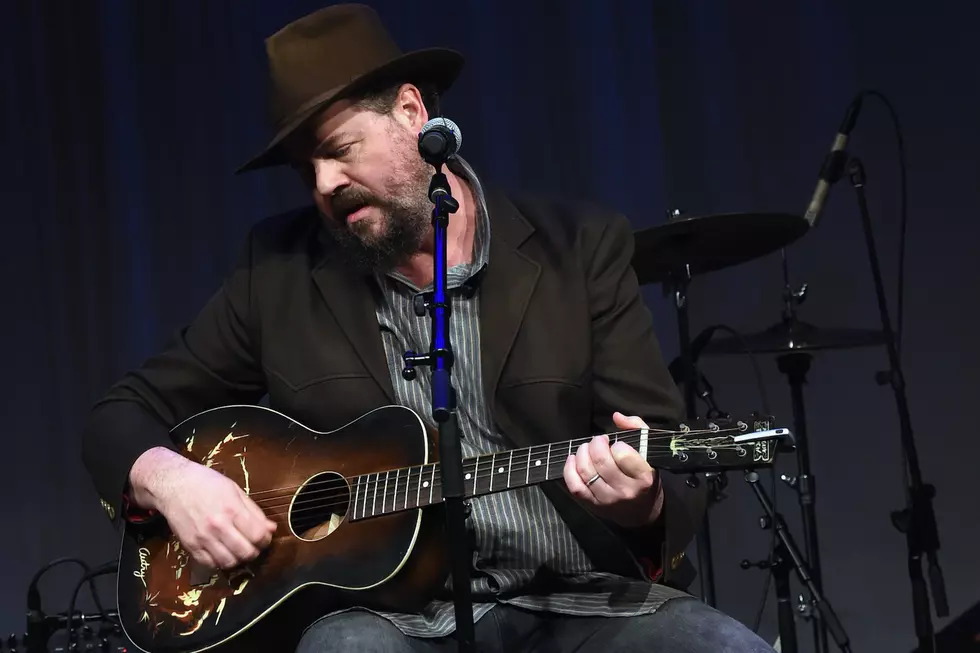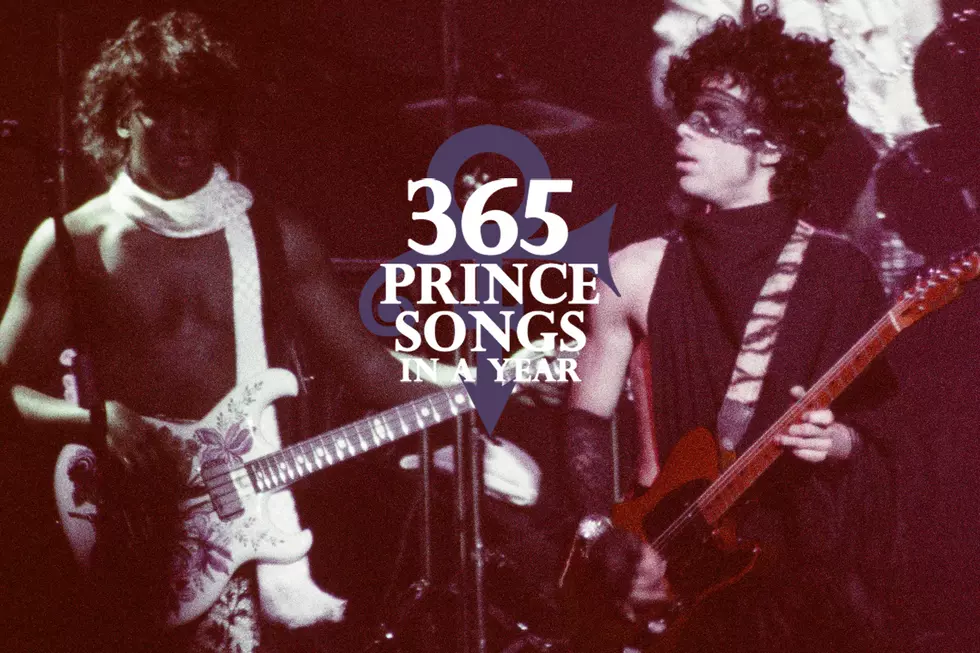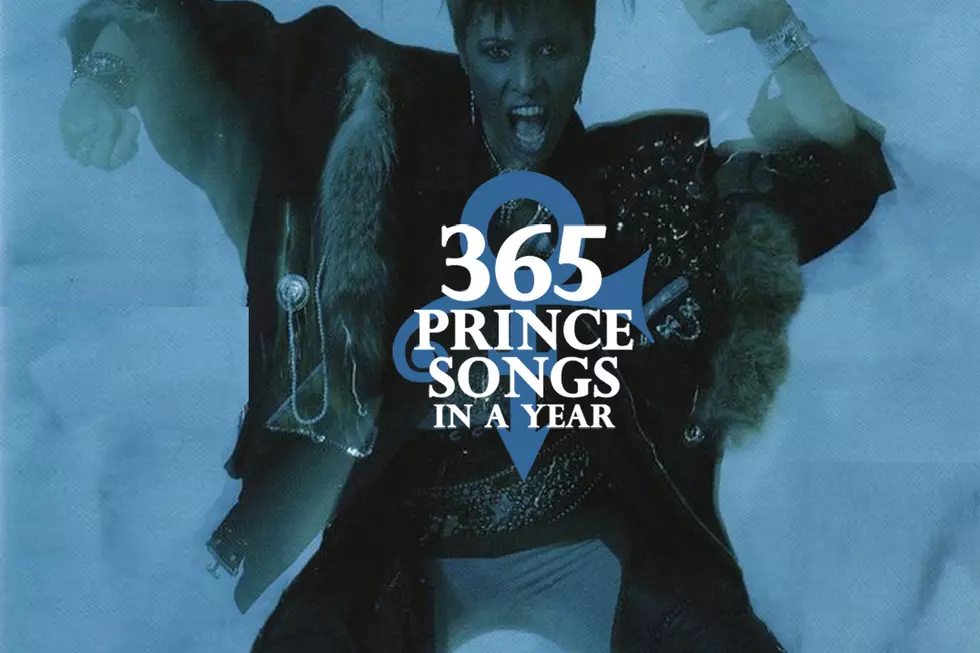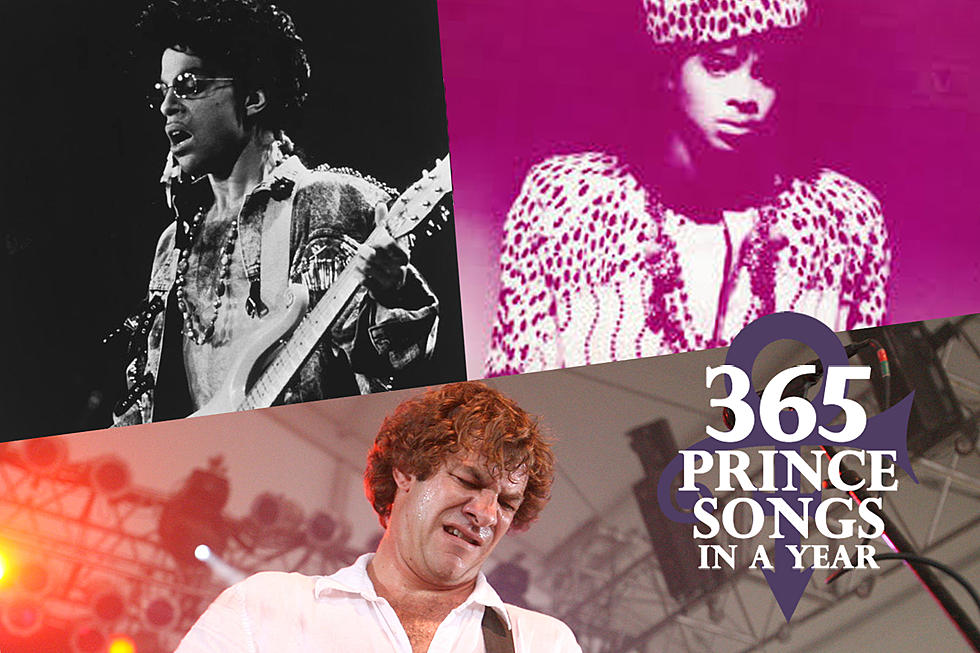
The Wombats’ Dan Haggis Looks Back on Band’s Beginnings + Into the Future with ‘Glitterbug’
From the Beatles to Echo and the Bunnymen, Liverpool has been a strong breeding ground for great musical acts. And the Wombats are just another example.
On their third album, Glitterbug -- which they released in April via Bright Antenna -- Matthew Murphy, Dan Haggis and Tord Øverland Knudsen showed a different side of themselves with more electro-infused pop that will easily make you want to get up and move. After a year filled with worldwide touring, the band is gearing up to return to the U.S. for a few shows in September to bring their new sound to any fan who missed out on their previous American visits.
Diffuser had the chance to chat with Haggis about the Wombats' latest record, their decade-long journey as a band and how they have stayed fresh for their fans. See the conversation below:
What's the most memorable track you worked on for Glitterbug?
"Greek Tragedy." Well, Murphy spends a lot of time in Los Angeles. His girlfriend is there. So a lot of the lyrics on the album are about the breakup of a relationship and then the fresh new period of a relationship, and "Greek Tragedy" was when he and his [ex-girlfriend] were splitting up and then when he was getting with the new girl. I mean, we've been constantly making music in this room in Liverpool. We always sent him ideas. Sometimes he'll hear something and say, "I love that," and work off it. Then Murph will send a melody and sing lyrics. And this song, we originally weren't going to send it to him because we thought it felt so different from our other stuff. But we were like, "We might as well play it to him," and he absolutely loved it. It was one of those moments where it [related] with what was going on in his life. It came together.
We actually went to L.A., and me and him recorded it. We were just recording to the backing track and hadn't heard any of the lyrics or the backing track really. We just went into the studio and sang it from the top. So to see a song grow in that way is really unusual for us as a band, because we normally see each stage together. But we didn't hear any of the lyrics at all until we were in the studio. So I think that one was memorable for that. And of course, being in L.A. was great. But there's loads of songs on [the album], to be honest, that we're just excited for people to hear them. There's another one called be "Be Your Shadow." Have you heard that one?
Yeah, it's a great one to dance to.
Again, it feels really uplifting but still feels like a departure from our sound a little bit -- maybe. I don't know, because we always think things are different that what we've done before. But then people go, "Well, this is clearly Wombats," you know? But I think it's just Murph's voice.
There are clear differences in how Glitterbug sounds compared to the Wombats' past work. Is that something that you guys consciously did?
Definitely. On this album, we tried to shake up the writing process a little bit. Some of the songs, rather than just have Murph come up with the melody himself, [Tord and I] did some of the top line singing and do some of the melodies that he was singing. We just wanted to see what came out. I mean, we all write and stuff. But we wanted to throw it all back in the mix and see what comes out of it. But I think all bands -- especially since we've been together for 10 years now -- need to find other ways to keep it exciting and fresh. So I think we did that. It was definitely quite a long process this time. And the label would always give us loads of s--- and always push us on. But yeah, so it's exciting.
Well, I wanted to talk to you about how long the Wombats have been a band. It's been a while.
Yeah, I think it's actually 11 years now. Oh god.
Was the longevity of the band something you ever foresaw in any way over the past decade?
Well, we definitely had no idea. When you're in school, you're never taught anything about [being in the music industry]. Being in band, unless you go to some rock school or class maybe, but even then… I think the essentials and the best part about being in a band is being with your mates. When you speak to most bands when they start, they usually say, "We just wanted to get into a room together and play some music." You just have a few beers, arse around and have fun. Then obviously some bands go to another level, and then you go, "Oh this is really cool. This sounds amazing." But we never thought really beyond the next rehearsal or next gig we had in Liverpool. I mean, of course, you harbor this little dream in your head like your heroes. I used to tell myself, "Oh I'd love to be Dave Grohl." Of course, you have ideas like that, but you never think it would be reality.
What do you wish you would have known before?
So, if your future self could [go] back in time and tell you? I don't know what I would have told myself really. We were really patient. We put in the work. I probably would have said, "Go a little calmer on the partying with the first album." Because we came up on the starting blocks like [starts panting], like greyhounds. Bands are always filled with that sense of "how long is this going to last?" And rightly so. How many bands release an album and people go, "Whoa! This is great." Then they can't follow it up or people lose interest or you get dropped by the label. Then everyone's lives move on. It's kind of hard to keep that unit and creativity between three people for that long. Maybe that's why we take it so slow as well. Because if it was too much all the time, maybe it would actually implode.
I don't know. Everybody needs their own space sometimes. Touring is so intense. If you go from making the album to touring, you've got two years of solid, nonstop spending time together that, even with the best of friends, can be a little bit testing sometimes. I think we're all really proud of how we've gone through things. And obviously we didn't know the business side of things. Our manager Simon [Bobbett] started with us in the early days and really feels like the fourth member and is his own music man on the side. He's been with us for eight years. He's just a mate, which helps as well, having someone you can trust for that side of things. And as far as our accountant, he's been really, really good.
I think that's one thing I would say to other bands, because we managed to get a lot of good people around us. I would say to younger bands, whatever you do, be responsible with that side of things. Get a manager and accountant who's going to look out for you and advise you properly. Because when you're 22 and you get your first advance from a record company, you really don't know what's going on. You didn't have that kind of money your entire life then now you have a bit you can spend. But [Bobbett] would be, "No, you can't have any of this. You have your share every month." He was really good about that. I know it's boring to talk about finances, but I would talk about that with younger bands and make them understand that.
Just like in the U.S., there are so many bands that come out of the U.K. all the time. How do you think the Wombats have been able to stand out and keep the band going?
We have never really felt 100 percent part of a scene, which maybe most bands don't. I think lots of our influences are like Radiohead, who evolved and always reinvented themselves after every album. And you can't put Radiohead in a bracket, and I know we are nothing like that and it's so ridiculous. But we always wanted to do new things. Obviously within us as a band, when the first album came out, we didn't want to go back and make the same music all over again. Whereas maybe there are other bands who find a sound and want to stay with it. We don't have meetings where we talk about how we're going to stand out from the crowd, you know what I mean? I think we just do whatever excites us at the time, and I guess we want to make music that sounds nothing like what we've heard -- as much as possible. So if we're working with a producer and he says, "Can I get my head around this song? What is it exactly?", we're like, "That's great." But it's still pop songs in the end.
You are from Liverpool like another very well-known band from the '60s. So what are some of the misconceptions that you've gotten because you're from that city?
Obviously the Beatles put Liverpool on the map musically, which is amazing really. Liverpool is like the fifth or sixth [largest] city in the U.K. And I think if it wasn't for the Beatles, I don't think Americans or Australians or anyone else from around the world would know much about Liverpool really. But obviously, people know, "Liverpool and the Beatles! Oh cool!" I think it's been a good thing, because people kind of assume, whether it's rightly or wrongly, if you're from Liverpool, you're great. Is it because the Beatles were there [that] people are waiting for what new band is coming out of Liverpool? Or is it because [the musical talent] really is there. Music is at the heart of the city, but it's also the same in Leeds and Manchester and all these other cities in the U.K. I guess it inspires you to be able to do something. Part of you thinks, "Oh it's never going to happen," but then a small bit will say, "But some people from Liverpool did all right so why not us?"
More From Diffuser.fm









